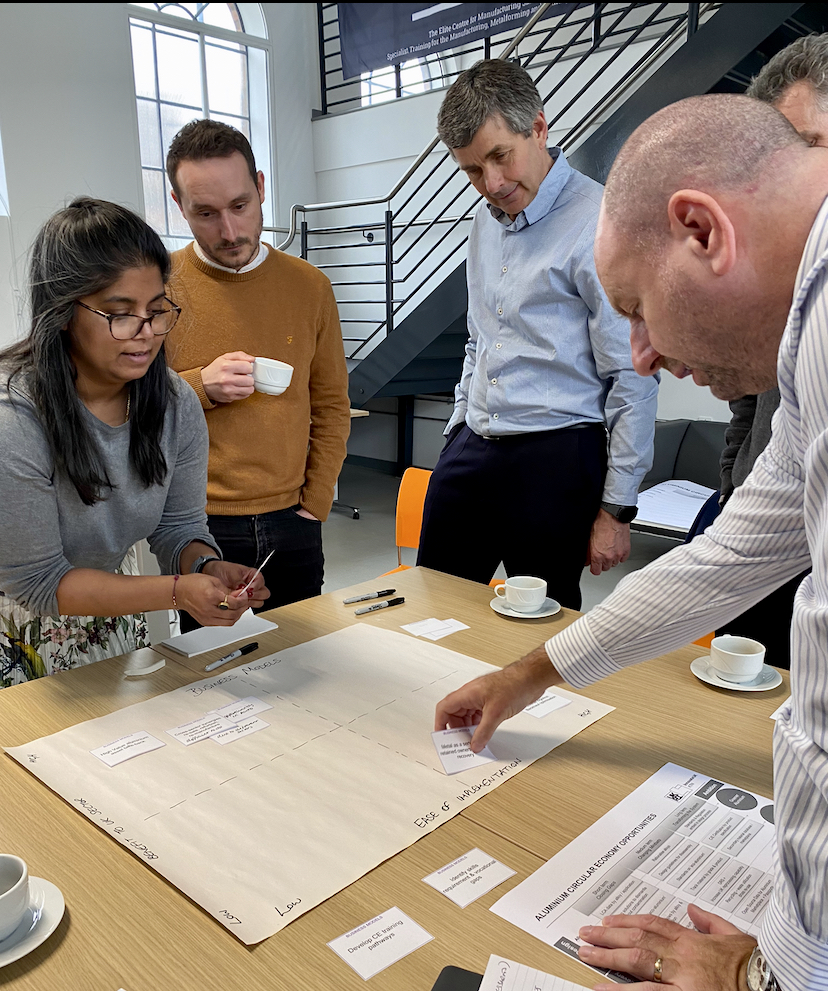Circular economy for aluminium: Beyond recycling
Aluminium has excellent properties for recycling, but there are great benefits in looking beyond recycling, towards re-use, remanufacture and repair in order to increase circularity of the sector. What are the issues that need to be addressed to adopt these approaches and build a circular economy for aluminium?
On 22nd February 2023, selected leaders from the aluminium sector gathered at Elite Centre for Manufacturing Skills in Wolverhampton, together with representatives from government departments and research organisations, to prioritise interventions needed to accelerate circularity of aluminium in the UK. It was clear there are significant benefits with increasing recycling, however, there is a great opportunity to see beyond recycling and to employ re-use, re-manufacture and repair approaches.
Recycling aluminium saves 97% of greenhouse gas emissions produced in the primary production process. But as we heard from Roger Morton (Managing Director for Technology and Innovation, EMR), they have demonstrated through a project in the re-use of steel in construction, that the steel I-beams have 10-fold less embodied CO2 compared to typical recycled steel. Hence, there is great potential for significant carbon savings by taking similar approaches with aluminium. That is not to mention the other resources and energy that are saved.
The demand for lower carbon materials is expected to increase. For example, in the automotive industry, aluminium is being increasingly used due to its lightweight, high-strength properties. However, the typical battery powered electric car has approximately double the embodied carbon of an equivalent internal combustion engine car. Scope 3 emissions and embodied carbon are increasingly important for automotive manufacturers. As Alan Banks (UK Lightweight Innovations Manager, Ford Motor Company) made clear, there is a business case for the UK to develop the infrastructure and capability here to meet this demand and reduce the reliance on imports. Furthermore, as resources become more and more scarce, security of supply will be critical in a global marketplace.
While there are technical challenges in developing the circular economy for aluminium, perhaps the greatest challenges are non-technical. Alessio Franconi (Research Fellow on the Circular Metal project at Brunel University) outlined the steps required to transform products, systems and society to circular practices. These steps are complex and involve multiple stakeholders working together, but through collaboration small steps can help us learn how to move away from the linear economy. Ultimately, we need to align economic prosperity with circularity to accelerate widespread adoption.

The workshop sessions allowed participants to discuss and prioritise interventions to help accelerate circularity in aluminium. The Circular Economy Innovation Network, run by Innovate UK KTN, will use the outcomes from the workshop to deliver an action plan for aluminium that will be published later this year.
To find out more about Innovate UK KTN Circular Economy Innovation Network and how you can be involved please click here.
By Dr Christopher Pilgrim, Knowledge Transfer Manager – Materials, Innovate UK KTN




